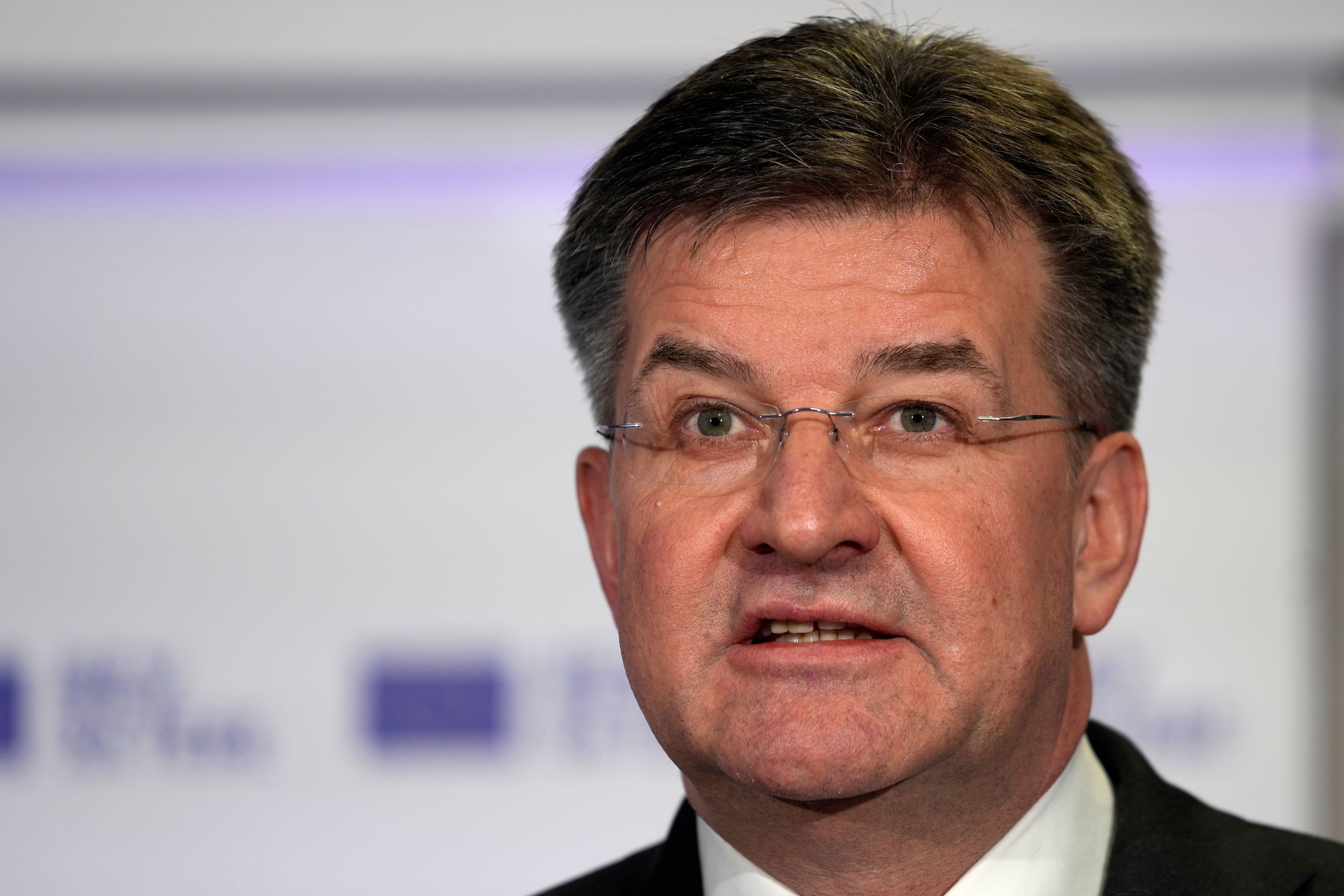EU envoy urges Kosovo and Serbia to resume efforts to normalize ties through talks
The European Union envoy for the Western Balkans has urged Kosovo and Serbia step up their efforts at normalization talks, saying these are decisive on their path toward membership into the bloc

Your support helps us to tell the story
From reproductive rights to climate change to Big Tech, The Independent is on the ground when the story is developing. Whether it's investigating the financials of Elon Musk's pro-Trump PAC or producing our latest documentary, 'The A Word', which shines a light on the American women fighting for reproductive rights, we know how important it is to parse out the facts from the messaging.
At such a critical moment in US history, we need reporters on the ground. Your donation allows us to keep sending journalists to speak to both sides of the story.
The Independent is trusted by Americans across the entire political spectrum. And unlike many other quality news outlets, we choose not to lock Americans out of our reporting and analysis with paywalls. We believe quality journalism should be available to everyone, paid for by those who can afford it.
Your support makes all the difference.The European Union envoy for the Western Balkans on Friday urged Kosovo and Serbia to step up their efforts at normalization talks, saying these are decisive on their path toward membership into the bloc.
Miroslav Lajcak was on a visit to Kosovo’s capital Pristina where he met with Deputy Prime Minister Besnik Bislimi, who is in charge of the Kosovo side of the EU-facilitated talks. The local press said Lajcak is not expected to go to Belgrade, as has usually been the case in all his previous trips.
The EU and the United States are pressing both sides to implement agreements that Serbian President Aleksandar Vucic and Kosovo Prime Minister Albin Kurti reached in February and March last year.
“The agreement is legally binding ... and beyond that the agreement is already part of the European road for Kosovo and Serbia,” Lajcak told journalist after meeting with Bislimi, adding that “there are statements from both sides which do not help.”
Lajcak, whose mandate has been extended until January by the bloc's Council, is working on the next high-level meeting for the two countries' leaders.
Kosovo-Serbia ties remain tense and the 13-year-long normalization talks facilitated by the European Union have failed to make progress, especially following a shootout last September between masked Serb gunmen and Kosovo police that left four people dead. NATO-led KFOR peacekeepers have increased their numbers and equipment along the Kosovo-Serbia border.
Washington, Brussels and KFOR have urged Pristina to refrain from unilateral actions fearing the revival of inter-ethnic conflict.
Last week Kosovo authorities closed five so-called parallel institutions in the north — where most of the ethnic Serb minority lives.
Kurti last month called for the full reopening of a bridge in the flashpoint city of Mitrovica, a move that the West is concerned would escalate tension with the area’s minority ethnic Serbs. Mitrovica is divided into a Serb-dominated north and ethnic Albanian south, and the two sides rarely mix.
Kurti has also been at odds with Western powers over Kosovo’s unilateral closure of six branches of a Serbia-licensed bank in northern Kosovo earlier this year.
Kosovo’s 1.6 million population is more than 90 percent Albanian.
The tiny Balkan country will hold parliamentary elections on Feb. 9, a vote that is expected to be a test for Kurti, whose governing party won in a landslide in the 2021.
Kosovo was a former Serbian province until a 78-day NATO bombing campaign in 1999 ended a war between Serbian government forces and ethnic Albanian separatists in Kosovo, which left about 13,000 dead, mainly ethnic Albanians, and pushed Serbian forces out. Serbia does not recognize Kosovo’s independence, proclaimed in 2008.
___
Semini reported from Tirana, Albania. Follow Llazar Semini at https://x.com/lsemini